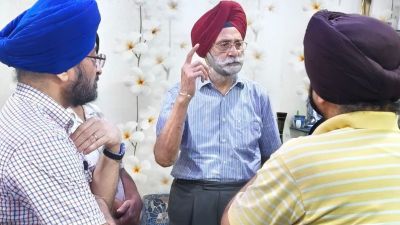Convention of Corruption
We have been crying hoarse about corruption. Laws have been enacted but to no avail. The cancer continues to spread. Open and shut cases lin...

We have been crying hoarse about corruption. Laws have been enacted but to no avail. The cancer continues to spread. Open and shut cases linger on endlessly, the corrupt gentry brazenly flaunt their wealth and position in society with impunity. A law which requires strict implementation is the one which deprives the corrupt of the fruits of their misdeeds by confiscating their properties which are the outcome of corruption. This will pinch more than imprisonment because the jail authorities can be fixed and the prison cell will be provided with the comforts of a five star hotel.
The United Nations has recently drafted a Convention against Corruption. About 120 governments met in Mexico on 9th December 2003 for the signing ceremony of the first legally binding international agreement to combat corruption. After signing the Convention, governments will embark on the process of bringing their laws and practices in accord with the Convention and obtaining national ratification. Thirty ratifications are needed for the Convention to enter into force. The Secretary General in his message stressed that corruption violates the socio-economic human rights of the people especially in the developing countries because funds meant for roads, well, hospitals, schools and other basic necessities are syphoned off and deposited in safe havens abroad.
It must be realised that a corrupt public servant is in reality a human rights violator and should be perceived and treated as such. Unfortunately there is no social ostracism in our country. Persons with well earned reputation for massive corruption are lionised and are invited to inaugurate schools and hospitals. Apparently there is tacit acceptance of corruption. Erudite seminars and routine fulminations about corruption are mere sound and fury signifying nothing. And so it will be unless there are speedy trials and convictions coupled with vigorous mobilisation of public opinion against corruption. Incidentally when will the Lok Pal Bill become law? Are bookies prepared to offer any odds? Probably not. It is such a dull and boring subject.
Dress Code
Strict dress codes are no longer in vogue nor observed. Requests for lounge suits or national dress in invitation cards by embassies for their national day functions are discourteously disregarded. Sartorial correctness however does matter. Entry into churches and other places of worship in shorts and multi-coloured bush shirts is rightly discouraged. Courts are supposed to be temples of justice and, although no dress code is prescribed, the attire of the litigant or the visitor must not offend the Goddess of Justice. The celebrated painter Hussain, who chose to be bare footed, was denied entry by a prestigious club in Bombay.
The US State Department has issued an internal directive which bars US envoys and their charges from sporting midriff-baring clothing, halter tops and plastic sandals at work. Its rationale is that ‘‘as the leading US foreign affairs agency, the Department of State is in the front line of customer service to the public at home and abroad’’ and therefore the professional image of the United States should not be sullied by sartorial lapses. After the Iraq imbroglio the anxiety is understandable.
Contrary to popular belief Americans are conscious about their attire. I realised this to my grief when I was invited to a private dinner hosted by an ardent Benn Goodman fan to celebrate the King of Swing’s 70th birthday in New York in 1979 and was told that the dress was black tie. Benny came to my rescue and said a dark suit would be alright. Since then I carry the Bandgala jacket which overcomes all dress code barriers. After all apparel doth proclaim the man.
New Year Ramblings
2003 has fled with lightning speed. The year was marked by extensive travels interacting with people in different lands, absorbing different ideas and digesting different foods.
New Year is a time for making resolutions. I refuse to make any in light of my dismal past record and Robert Lynd’s admonition that the road to hell is paved with good intentions. Despite resolutions I yield to the seductive charms of a cheerful bookshop or a well-stocked music store knowing fully well that there will be little leisure to read or listen to music. But leisure, as Irwin Edman reminds us, ‘‘is not a chronological occurrence but a spiritual state. It is unhurried pleasurable living among one’s native enthusiasms’’. In 2004 I yearn for the soft obscurities of retirement, ideally under the shelter of academic bowers, reading, thinking, writing and listening to the music of the great masters, amongst the charms of solitude far from the madding crowd and away from the movers and shakers. There is an insistent ringing of the telephone and the annoying message: ‘‘Sir, Court No.2 is moving fast. Your case is likely to reach. Start immediately’’. My utopian reverie is shattered temporarily. My yearning remains unfazed.
Photos


- 01
- 02
- 03
- 04
- 05




























